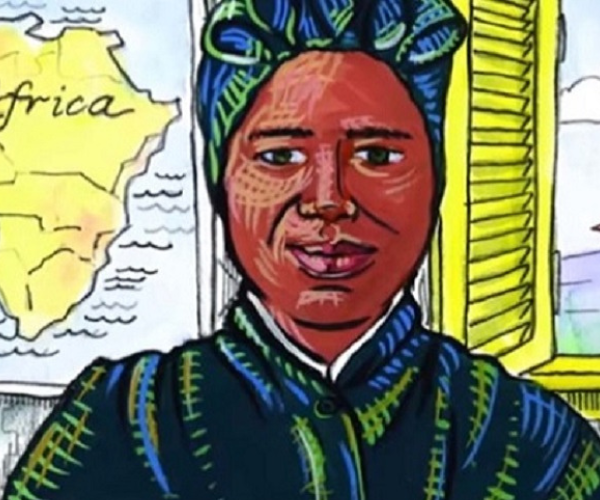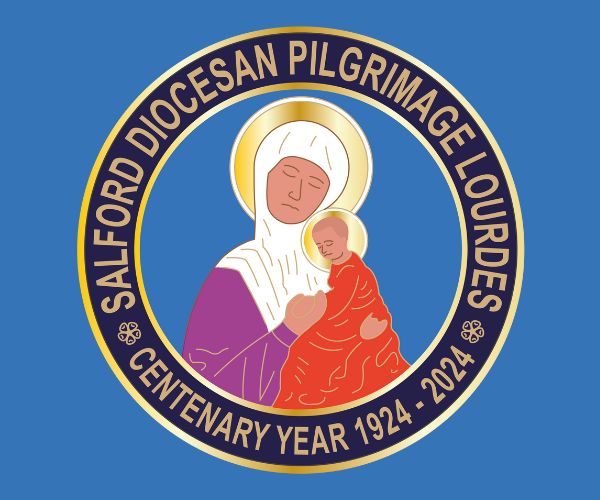
St Bakhita Day: New Code of Conduct to tackle Modern Slavery
Wednesday 8th February 20238th February 2023 marks the ninth International Day of Prayer and Reflection Against Human Trafficking. This date has been chosen as it is the Feast Day of St Josephine Bakhita. St. Josephine was kidnapped and sold into slavery at the age of 7. After she was freed in Italy years later, she became a nun and has since emerged as a patron for all victims of trafficking. St. Bakhita’s legacy remains in the work undertaken by the local anti-trafficking groups around the world.
Last year on this date we shared our first diocesan Modern Slavery Statement. The Statement was published jointly with Caritas Diocese of Salford. The Cathedral Centre Bookshop, and SDC Trading, the organisation that looks after our parish centres.
Welcoming the publishing of the statement, last year, Bishop John, said:
“I welcome and endorse this Statement which acknowledges our potential complicity in human exploitation and commits the Diocese to doing everything we can to ensure that our supply chains are free of modern slavery.
There is a global problem happening now. There are more slaves in the world currently than at the height of the Trans-Atlantic Slave Trade. The true number of people who are experiencing the trauma of modern slavery is unknown, but the Global Slavery Index estimates 40 million people worldwide and 136,000 people in the United Kingdom. This includes members of our own communities and parishes.
People experiencing modern slavery and trafficking should rightly see our churches and social outreach as places of sanctuary and refuge. It is important, therefore, to ensure that all members of the church, clergy, parishioners, staff and volunteers are aware of the signs to look out for and how they can help survivors find protection and support.”
This year we make another important step towards our commitment to tackle modern slavery within the diocese as we issue across our central suppliers with a new code of conduct. We are aware of the impact we can have as a diocese by using our power to influence the practises of the businesses through our procurement processes.
The code makes clear that all businesses, charities, and organisations have a responsibility to act in the fight against modern slavery. The Code of Conduct for Suppliers represents our efforts to purchase, services and works that avoid exploitative labour practice, have the least negative impact on the environment and uphold the principle of human dignity. We expect suppliers not only to share our aspirations but to be taking active steps to check and audit their supply chains and their working practises.
The code will be initially rolled out across our central suppliers and then we will be working with parishes to assist with the roll out more locally.
In 2014, Pope Francis described Human Trafficking as “An open wound on the body of contemporary society, a scourge upon the body of Christ. It is a crime against humanity”. He called on us all to take responsibility and to act.
Our current work builds on Caritas’ partnership with the Medaille Trust, link the work already undertaken by Caritas Anti-Trafficking, link which began as an initiative by parish volunteers in Our Lady of the Valley Parish, Clitheroe in 2015 and working with East Lancashire Police to raise awareness.
The project has created various resources to raise awareness of Modern Slavery, and has delivered a range of talks and seminars to parishes, schools and other voluntary organisations.
We will also be sharing with parishes a number of new resources from The Santa Marta Group. The Santa Marta Group was developed by the Catholic Bishops Conference of England and Wales and first met in Rome during April 2014 when police chiefs and Catholic bishops came to together, in the presence of Pope Francis, to sign a historic declaration, committing themselves to a partnership to eliminate human trafficking.



